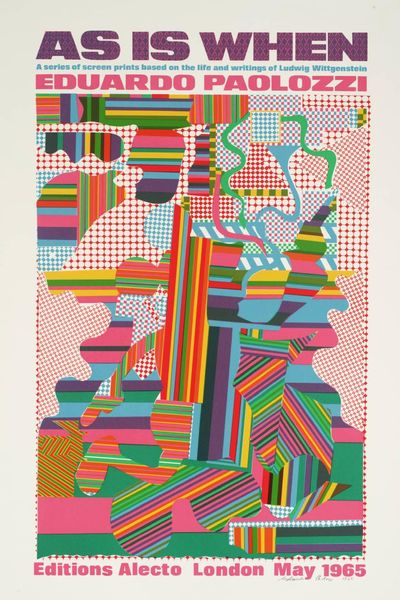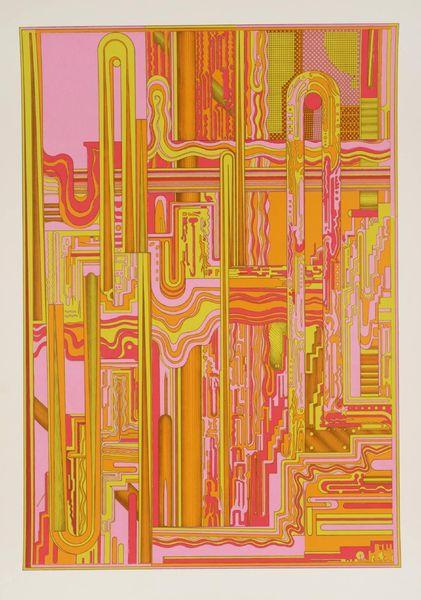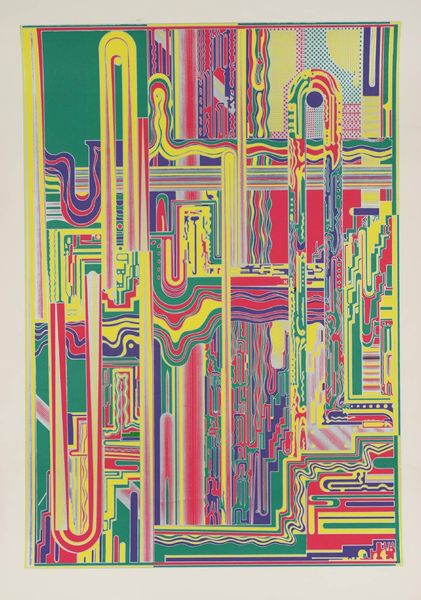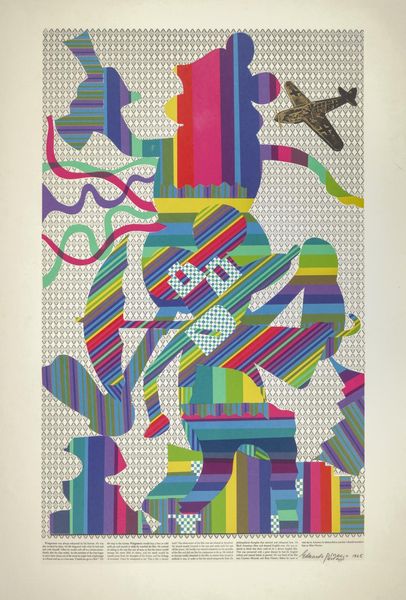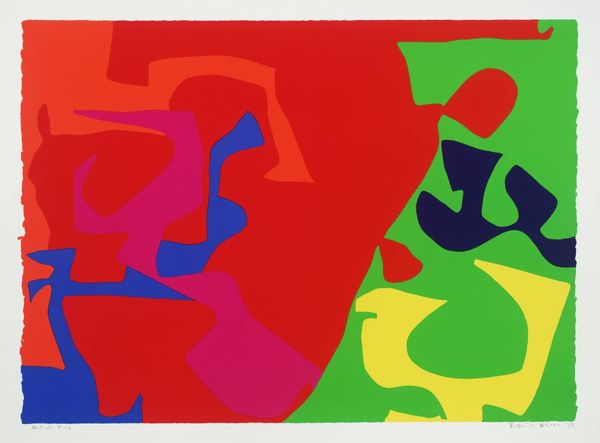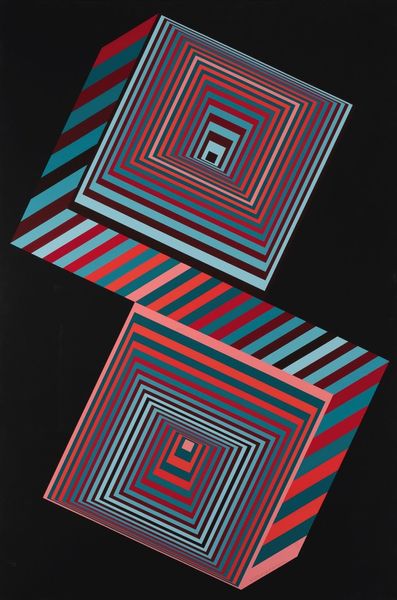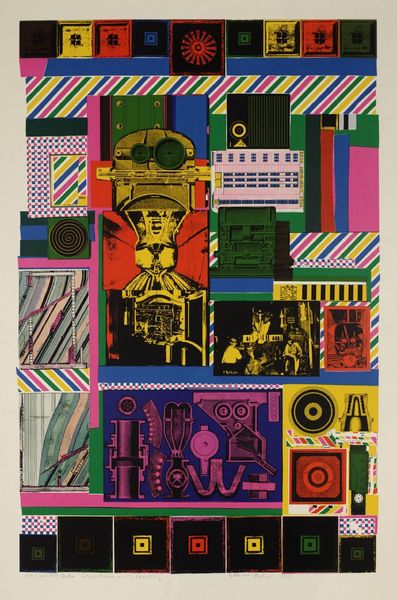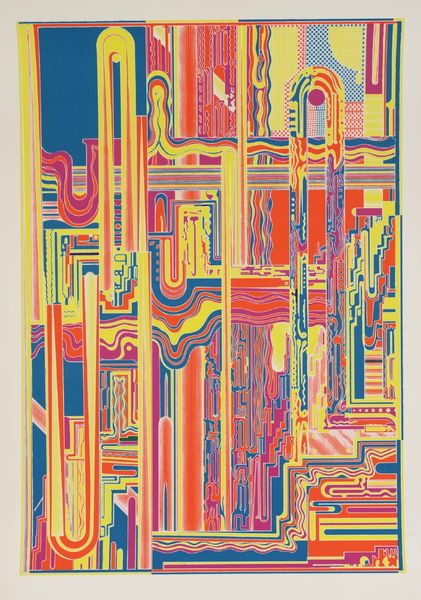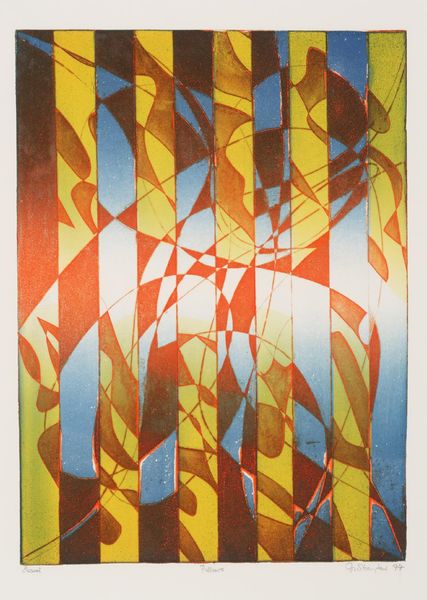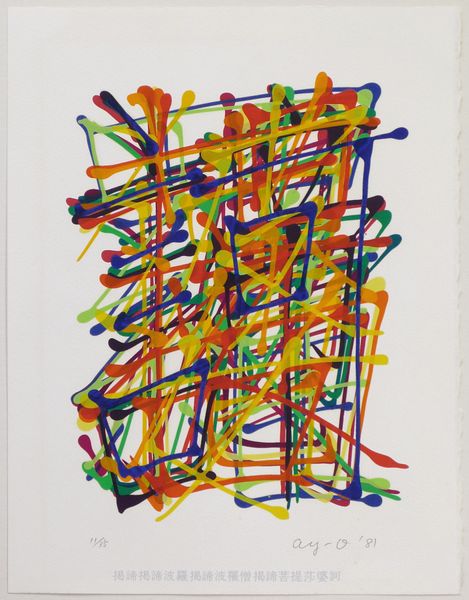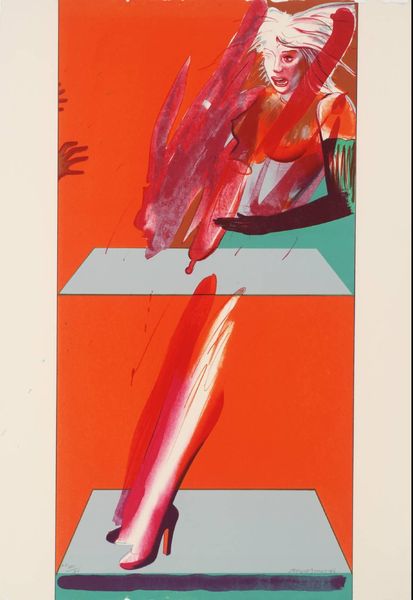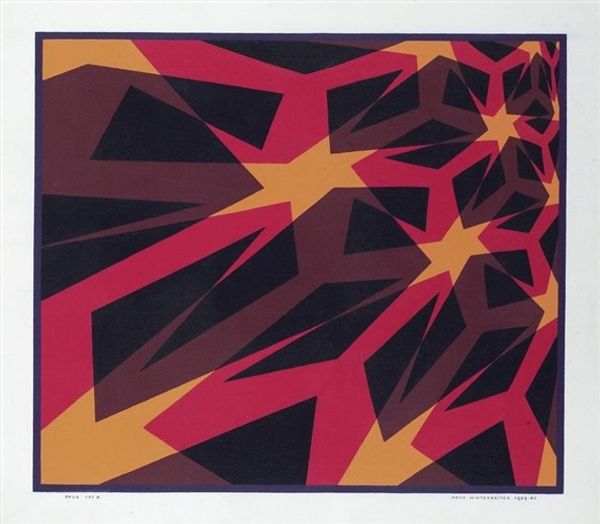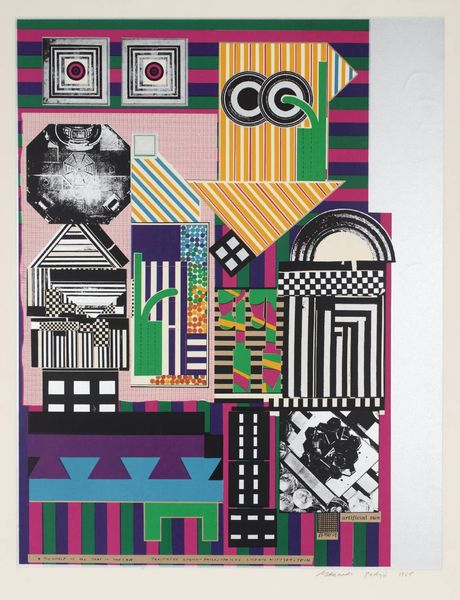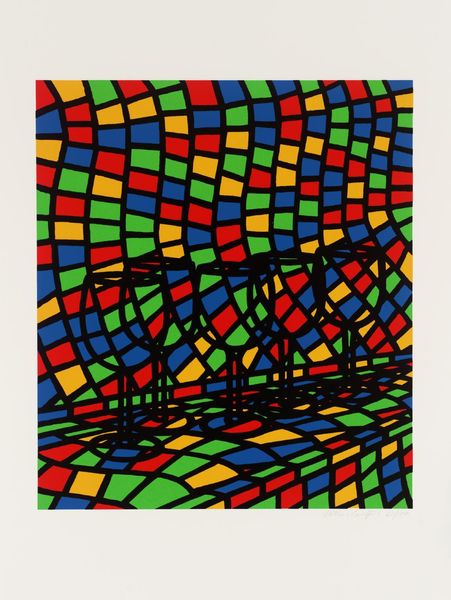
Dimensions: image: 781 x 540 mm
Copyright: © The Eduardo Paolozzi Foundation | CC-BY-NC-ND 4.0 DEED, Photo: Tate
Curator: Eduardo Paolozzi’s screenprint, "He Must, So To Speak, Throw Away the Ladder," presents a vibrant visual puzzle with striking geometric forms. Editor: It's overwhelmingly busy at first glance, almost chaotic, but those stripes evoke a sense of playful energy. I wonder about the title, though. Curator: Paolozzi’s work often explores the fragmentation of modern experience. This piece reflects his interest in Wittgenstein's philosophy—the idea that one must discard methods after achieving results. Editor: I see echoes of constructivism here, the simplification of form, but also something deeply psychological. The ladder, traditionally a symbol of upward progress, is rejected. What does that mean in a post-war context? Curator: Perhaps a rejection of hierarchical structures, a dismantling of old systems in favor of something new, more egalitarian, and embracing of technology. Editor: It makes me question the symbols of progress itself. Is this ladder a burden or a tool? Curator: A fascinating question, and one that Paolozzi provokes. Editor: I'll be looking at ladders differently now.
Comments
tate 10 months ago
⋮
http://www.tate.org.uk/art/artworks/paolozzi-he-must-so-to-speak-throw-away-the-ladder-p04761
Join the conversation
Join millions of artists and users on Artera today and experience the ultimate creative platform.
tate 10 months ago
⋮
The life and theories of the Austrian philosopher Ludwig Wittgenstein inspired this sequence of screenprints. Each print includes quotations from Wittgenstein''s own writings or passages from a biography. The collages of fragmented images relate to these texts. Paolozzi has described the prints as ''a kind of combined autobiography''. His Italian background led him to identify with Wittgenstein as ''a foreigner in England'', who shared an interest in engineering and a love of cinema. He has also drawn parallels between Wittgenstein''s theories of language and his own artistic practice. Gallery label, August 2004
